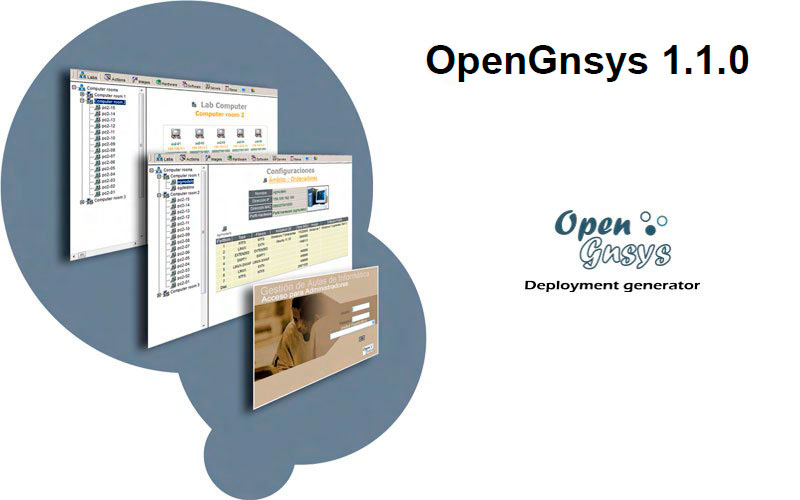In addition, also as an improvement, this version has several repositories for the same client, organizational units with a separate image directory, and the option to display repository image information.
As in every new release, some errors have been corrected, and other minor innovations have been introduced; you can check this OpenGnsys 1.1.0 change list. The new version can be downloaded in this link.
OpenGnsys is the result of the efforts of several Spanish public universities, which work collaboratively to offer a series of free and Open Source tools that constitute a complete, versatile and intuitive system for the management and cloning of workstations. This system allows the distribution, installation, and deployment of different operating systems.
One of the projects developed with OpenGnsys is Remote PC, whose main pillar is the UDS Enterprise VDI connection broker. Its objective is to allow remote access to ICT classroom equipment from universities outside of school hours, and from anywhere, and using any device.
The relationship between UDS Enterprise and OpenGnsys has been strengthened with the development of the new release of UDS Enterprise, 2.2 version, which incorporates full support for this physical device orchestrator. The UDS Enterprise 2.2 beta has already been released and has been made available to all UDS Enterprise subscribers.







0 Comments